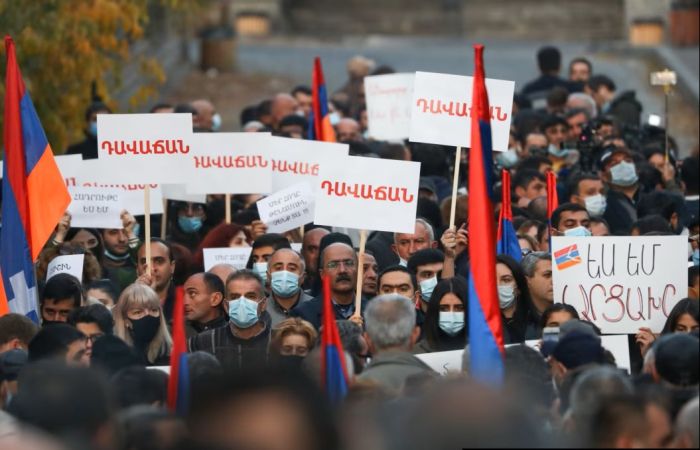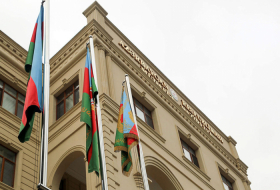Azerbaijan was extensively criticised for “reselling” Russian gas to Europe. Even the European Parliament stepped in and raised this question. This campaign persists even though in September 2023, the European Commission officially denied these accusations against the gas imports from Azerbaijan.
“It's just a question of volumes… From our information, the volume of gas exported from Russia to Azerbaijan is significantly smaller than the gas we are importing from Azerbaijan. Hence, it's simply a case of there is not (enough) Russian gas going in on a scale of what we're importing into Europe”, said a spokesperson of the European Commission.
Nevertheless, Armenian experts and politicians, as well as Western media outlets, continue to keep this issue on the agenda and accuse Azerbaijan of allying with Russia. According to these pro-Armenian groups, Russia and Azerbaijan have allied against Armenia, which necessitates strong military, economic, and political support from the West for Armenia.
Curiously, something bigger is happening in parallel that, for some reason, does not attract comparable attention and criticism. On September 13, Russia’s Deputy Prime Minister Aleksey Overchuk denied deterioration of the Armenia-Russia relations during his visit to Armenia and said, “Figures and facts speak louder than words”.
To substantiate this claim, he said something that raised many questions about the tensions between Moscow and Yerevan. “In 2023, bilateral trade between Russia and Armenia grew by 55.8 per cent to $7.4 billion. This year, growth has accelerated. In the first half of this year alone, trade turnover between our countries amounted to $8.4 billion”, Overchuk said.
These are striking figures, as the turnover between the two may reach $16 billion by the end of this year, with a gigantic growth from its $2.3 billion level in 2020. There is a series of evidence confirming that this growth would not have happened without bypassing the Western sanctions on Russia and re-exporting sanctioned products.
The EU and the United States have repeatedly mentioned Armenia in the context of countries helping Russia evade the sanctions. But this fact, and more importantly, the skyrocketing rise in the Armenia-Russia trade turnover, raise at least two critical questions.
First, would there have been such significant growth in Armenia-Russia relations without genuine tensions between the two countries? Second, why do Western media and politicians who criticise Azerbaijan for its gas dealings with Russia not address Armenia’s circumvention of Western sanctions at a similar level?
As the European Commission confirmed in 2023, Azerbaijan’s import of just one bcm of Russian gas is minimal compared to its European exports. Azerbaijan’s relationship with Russia does not indicate an alliance; for instance, President Putin’s recent visit to Azerbaijan, which yielded no substantial agreements or binding commitments, underscored that cautious approach. Azerbaijan is not pursuing membership in the Eurasian Economic Union (EAEU) or the Collective Security Treaty Organization (CSTO).
President Ilham Aliyev has clarified that Baku has no plans to join these entities. In parallel, the European Union remains Azerbaijan's first trading partner, with over 60 per cent of the country’s total trade.
Azerbaijan’s external orientation sharply contrasts Armenia’s close economic ties and alignment with Russia. As of the first half of 2024, Armenia’s trade turnover with Russia exceeded $8 billion—more than three times that of Azerbaijan, whose trade with Russia amounted to $2.5 billion.
This is especially striking given that Armenia’s economy is significantly smaller than Azerbaijan’s, and its population is roughly one-third the size. Yerevan remains a member of the Eurasian Economic Union (EAEU) and the Collective Security Treaty Organization (CSTO) and is unlikely to exit soon. As Overchuk noted, "Actions speak louder than words."
These developments raise the question of whether the apparent tensions between Moscow and Yerevan are a political manoeuvre designed to shield Armenia’s role as a partner in evading Western sanctions and mitigating Western backlash.
The core issue highlighted here is not about the actual state of Armenia-Russia relations but the double standards that Western institutions and media apply. Azerbaijan faces unwarranted attacks and accusations of aligning with Russia, while Armenia's substantial economic and political connections with Russia receive comparatively little scrutiny. It reveals that Armenia’s opposition to Russia is overstated, and Azerbaijan remains committed to its traditional multivectorial foreign policy course.
AzVision.az
More about:
















































